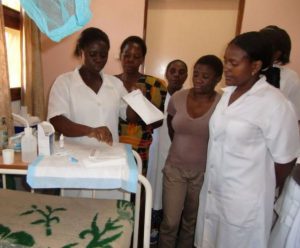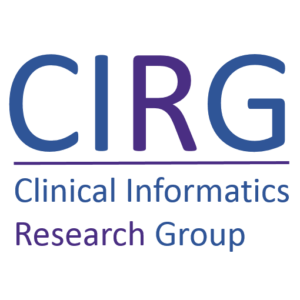Advancing Nursing Science & Care
Centers provide infrastructure support, leadership and collaborative mentoring for faculty and clinicians, as well as a variety of diverse research opportunities for students, in an unparalleled multi-disciplinary research environment that ultimately improves health for the wider community. These centers encourage students to develop strong critical thinking skills and build an understanding of effective research methods, which will in turn, help them become better healthcare professionals and advocates.
Manning Price Spratlen Center for Antiracism & Equity in Nursing (MPSCARE)
Systemic racism has for generations undermined the health of individuals and communities across America, and clearly is a public health crisis.
Recognizing that nurses play a central role in and hold major responsibility for the health of individuals and communities hit hard by historic racial inequity, the University of Washington School of Nursing is establishing the Center for Antiracism in Nursing. To shape the center and determine its priorities, listening sessions will be held scheduled in the near future to hear the interests of faculty, staff, students, alumni, nurse leaders, healthcare institutions, community organizations and professional associations.
Center for Global Health Nursing
The UW School of Nursing’s Center for Global Health Nursing works to promote nursing research and training to build capacity for appropriate and sustainable improvements in health and healthcare. We aim to do this through innovative nursing science, across differing cultural contexts, both locally and abroad. The Center harnesses the existing expertise, experience, and enthusiasm of the UW School of Nursing faculty and students in partnership with local, national and global nursing organizations and academic institutions.
Read More
Center for Health Sciences Interprofessional Education, Research and Practice
 The Center for Health Sciences Interprofessional Education, Research and Practice (CHSIE) is dedicated to transforming practice by furthering collaboration between the healthcare professions. The Center’s core faculty, staff, and partners represent disciplines across the health sciences and more, who are passionate about advancing interprofessional teamwork to improve patient safety and quality in healthcare. The Center supports innovative and sustainable interprofessional education, research, and collaborative practice for students, educators, researchers, clinicians, and patients at the University of Washington, together with local, regional, and national partners. Read more
The Center for Health Sciences Interprofessional Education, Research and Practice (CHSIE) is dedicated to transforming practice by furthering collaboration between the healthcare professions. The Center’s core faculty, staff, and partners represent disciplines across the health sciences and more, who are passionate about advancing interprofessional teamwork to improve patient safety and quality in healthcare. The Center supports innovative and sustainable interprofessional education, research, and collaborative practice for students, educators, researchers, clinicians, and patients at the University of Washington, together with local, regional, and national partners. Read more
Barnard Center for Infant Mental Health and Development
The mission of the Barnard Center for Infant and Early Childhood Mental Health is to promote interdisciplinary research and training related to infant and early childhood mental health. During the first five years, as children learn to experience, express and regulate emotions, form close relationships, and explore and learn from the environment, we say they are thriving according to the principles of infant and early childhood mental health.
Read More
de Tornyay Center for Healthy Aging
The de Tornyay Center is dedicated to addressing and embracing the changing needs of our population, building robust pathways to healthy aging that are supported by innovative nursing research and a nursing workforce knowledgeable about older adults.
Read More
Clinical Informatics Research Group
 The Clinical Informatics Research Group (CIRG) is a collaborative faculty research group that develops, builds, and operates information systems that securely manage health information for projects in the Clinical, Public Health, and Global Health Informatics domain. Read More
The Clinical Informatics Research Group (CIRG) is a collaborative faculty research group that develops, builds, and operates information systems that securely manage health information for projects in the Clinical, Public Health, and Global Health Informatics domain. Read More
Center for Innovation in Sleep Self-Management
The Center for Innovation in Sleep Self-Management (CISSM) develops, tests and implements self-management interventions to help adults and children with chronic illnesses sleep better and improve their health. The center leverages self-monitoring technologies, such as smart home sensors that track noise, light and temperature; mobile applications that measure dietary, exercise and caffeine intake; and wrist monitors that measure sleep-wake activity and light levels. These tools allow patients to monitor their sleep behavior, set goals and receive feedback on adopting healthy behaviors.
Read More
